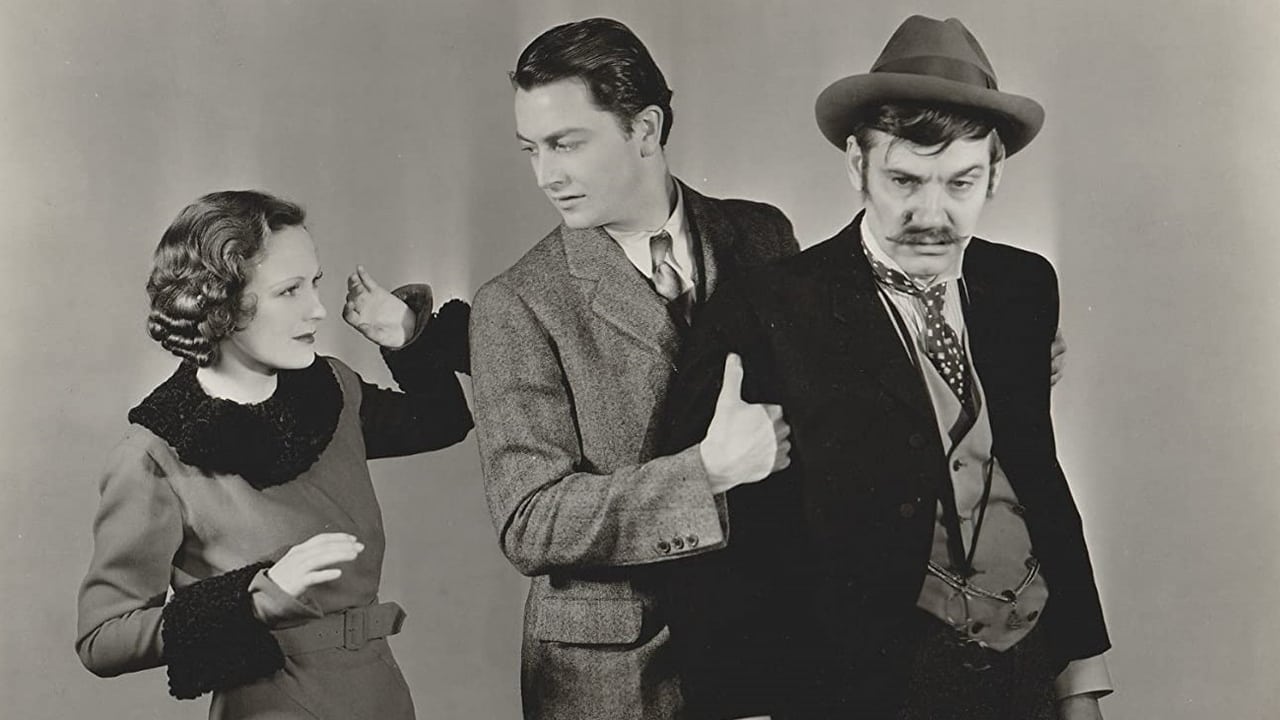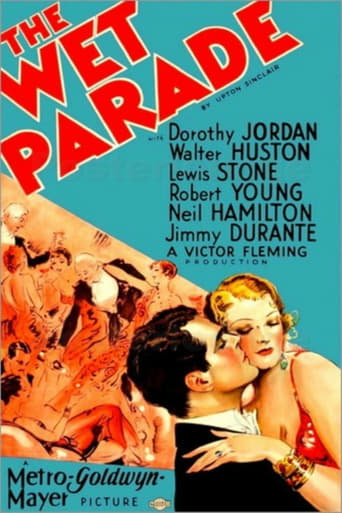



Good concept, poorly executed.
It isn't all that great, actually. Really cheesy and very predicable of how certain scenes are gonna turn play out. However, I guess that's the charm of it all, because I would consider this one of my guilty pleasures.
View MoreIt really made me laugh, but for some moments I was tearing up because I could relate so much.
View MoreThis is one of the best movies I’ve seen in a very long time. You have to go and see this on the big screen.
View MoreProduced at a time when America was having second thoughts about the 18th Amednment, this is an interesting period piece that shows the effects of alcohol on two families as well as the unintended consequences of Prohibition. Unfortunately, the movie runs too long as the plot tries to develop the eventual interconnection of the two families. However, it does treat the effects of Prohibition in an evenhanded manner. Neil Hamilton has the best roll as the upright son of the Southern family who descends into alcoholism, despite having seen the effects of booze on his father. Robert Young, who has the corresponding position in the city family, remains "dry", but comes across as somewhat of a prude. Jimmy Durante is totally miscast as a Treasury Agent.
View MoreThis Hollywood production takes a staunch (if peculiar) anti-alcohol, pro-Prohibition stance. It condemns the exaggeratedly tragic effects of alcohol consumption, as lives are torn apart by the mere existence of the Demon Drink. The film was released while Prohibition was still law, and it preached its Dry message directly at the 1932 audience.In a sense, THE WET PARADE (1932) does for alcohol what TELL YOUR CHILDREN (1936) does for marijuana. What sets this film apart is its compelling story and excellent cast.The film chronicles the rise of Prohibition out of World War I and the effects of its enforcement. It's an interesting take on the subject, showing the political and moral motivations behind the Dry movement, the last-minute hoarding of booze before the Eighteenth Amendment went into effect, the rise of speakeasies and bootlegging, and the government crackdown on liquor. The government men are portrayed like secret agents in enemy territory, infiltrating speakeasies undercover and gathering evidence before a raid. Saving the public from themselves.The movie even touches upon some of the negative consequences of Prohibition (poisonous bootleg liquor, organized crime, etc.), placing the blame not on the law, but the insatiable appetite for alcohol among deviant Americans.The cast assembled for this Prohibition epic is impressive. The leads are second-rate (Robert Young and Dorothy Jordan), but they are joined by some A-list supporting actors like Lewis Stone, Walter Huston, Wallace Ford, Jimmy Durante, John Miljan, Neil Hamilton, and even Myrna Loy.In hindsight, decades after the repeal of Prohibition in the U.S., it seems the filmmakers may have been a bit misguided in their didacticism, although, to be fair, the movie is based on a book. And the film was only discouraging activities which were illegal at the time.Still, the movie's crusading stance goes a little over-the-top. There's one scene near the end where John Miljan speaks right into the camera, directing his anti-booze rant at the viewers in the theatre. A noble gesture by MGM, supporting law and order, but it's a bit silly nowadays.
View MoreTHE WET PARADE is the sort of old fashioned film that looked old and out of date even when it came out in 1932. In so many ways, this film is a carryover from the early silent anti-drinking melodramas of the first decade of the twentieth century--complete with ridiculously one-dimensional characters and a very heavy-handed message. In fact, the message is so heavy-handed that I seriously doubt if the anti-alcohol message had much effect on audiences--other than to elicit laughter! This is all very sad because very few films have ever addressed the impact of alcohol on its many victims (most of which aren't even the drinkers themselves)--too bad this was handled so poorly.Why do I say it was handled poorly? Well, many of the drunks portrayed in the film are totally one-dimensional and the actors overact so much as they portray them. This was pretty apparent with Lewis Stone's character, but compared to the ridiculous guy played by Walter Huston, he was downright subtle. As for Huston, he seemed more like a Tourette's sufferer than anything else, as he REPEATEDLY twirled his handlebar mustache and grunted (some actual symptoms of the disorder--seriously). However, most in the audience today may not recognize him, but this character acts almost exactly like those from melodramas of 30 years earlier--widely exaggerating EVERYTHING and chewing the scenery! In many ways, he seemed like a drunk version of Snidely Whiplash! Now when it comes to the impact on those around these ridiculous drunks, the film did a much better job. The co-dependent family members and enabling friends were excellent touches--but still weren't enough to make up for the awful characters played by Stone and Huston.Other than these silly drunks, the film also chronicled the history of the prohibition movement--and this was mildly interesting from a historical point of view. What I learned from the movie is that what really helped this anti-liquor crusade was WWI and moves to stop the production of intoxicants in order to feed our troops and starving Europeans. An interesting tidbit amongst the "sledgehammer symbolism" throughout this entire film.If anyone knows of a movie to SERIOUSLY address alcoholism from this era, let me know--as for THE WET PARADE, it's practically cartoon-like in its generalizations and bad characterizations. It's good for a laugh and maybe a brief history lesson buried within, but that's about all.FYI--The director of this film, Victor Fleming, was himself an extremely heavy drinker according to several biographies I've read (including CLARA BOW: RUNNING WILD). And, ironically, if you read the biography for Huston on IMDb, he apparently was the master of ceremonies at a brewery party the night Prohibition expired!!
View MoreI loved The Wet Parade and gave it a 10. I loved it because it clearly depicts the pain and suffering caused by the loss of free will, whether through addiction or government imposed sanctions. I found the film to be as relevant today as it was when it was released in 1932, just months before the repeal of Prohibition. There is no attempt to provide a solution, just a vivid picture of the problem. A problem which continues to grow in magnitude.
View More